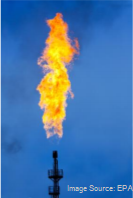Many cities and counties across the country have pledged to go 100% clean energy by 2035. As part of that commitment, the cities are considering or passing bans on natural gas. A story in NPR highlights how the gas industry is pushing back, using ratepayer funds to help with the pushback.
Already, 4 states have passed laws to prevent cities from banning natural gas, including Tennessee in the Southeast. This year, 12 more states are considering similar laws, including Mississippi, Georgia, and Florida in the Southeast.
Natural gas in homes can cause health problems for the people who live there. It contributes to climate change, which is already causing health problems from heatwaves, storms, hurricanes, floods, and wildfires. Natural gas also creates air pollution inside homes, especially from gas stoves or unvented gas fireplaces. In addition, air pollution from gas production and transport affects overburdened black, indigenous, and communities of color, exacerbating environmental injustice.
Air is 21% oxygen and 78% nitrogen. When natural gas burns, it can use nitrogen along with the oxygen, which creates nitrogen oxides in the home. Nitrogen oxides cause asthma and emphysema attacks, and can cause asthma. Nitrogen oxides also damage teen’s lung growth, setting them up for a lifetime of respiratory problems. Read our blog with Dr. Anne’s testimony for more about the health problems from natural gas inside homes.
Cities and counties should be able to regulate natural gas for health reasons, just like they have regulations about radon or lead paint. Between the indoor air pollution from gas stoves, and the climate change caused by drilling, processing, and burning natural gas, natural gas is harmful to our health.
It leaves us wondering: why are state legislators passing laws to prevent cities and counties from protecting their residents’ health?
You can take action and tell your local, state, and federal elected officials that you want clean air, both indoors and outside. This is extra important if you live in Mississippi, Florida, or Georgia.
02/23/2021





